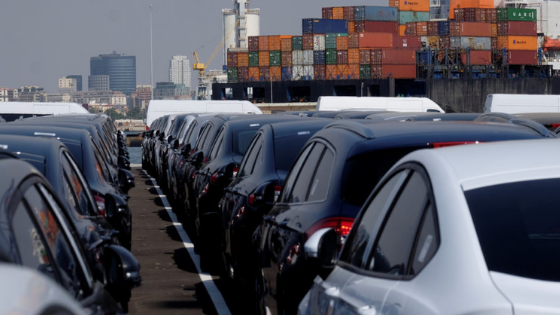CPA Trade Counsel Charles Benoit discussed America’s successful history of tariffs on Tuesday with roughly a dozen Congressional staffers. The point: dispel tariff falsehoods.
“From 1789 until the imposition of income taxes during World War I, tariffs were used to fund most of the federal government as well as encourage domestic production and self-reliance,” said Benoit. The most powerful nation in the world was built behind a protective tariff wall.

Source: Wikimedia Commons
Tariffs were not used to stifle competition. Foreign investment was welcome. “Business competition from abroad was embraced, but the expectation was that things sold here would be made here,” he said.
Benoit also contrasted tariffs with the income tax. Tariffs have virtually zero compliance costs. They are assessed as merchandise passes through a port of entry. Conversely, income tax complicates even the most personal of human interactions, from hiring a nanny to working as a freelancer.
Benoit also contrasted tariffs with the gas tax, which is uniquely paid by Americans. “There will be some cases where tariffs get passed on to American consumers, but that’s nowhere near the norm. Compare that to real consumer taxes, like the gasoline tax, which is 100% paid for by consumers,” Benoit said.
The United States Treasury is currently earning around $50 billion per year from the additional China tariffs which began in 2018. That amount roughly equals the amount of income tax paid by the bottom 50% of payers.
Made-in-China producers mostly absorbed the brunt of that tariff. Benoit gave the example of the Buick Envision, which has been imported from China since 2015. Media reports warned in 2018, that with the additional 25% tariff, the price would increase by $8,000. But in fact, the price of the Envision went down for the 2019 and 2020 model years, as GM’s joint venture partner, a Chinese state-owned enterprise, absorbed the cost.
Benoit stressed that of the 164 nations in the WTO, the United States has committed to the lowest tariff caps, at an average tariff rate of just 3.4%. Indeed, on thousands of products, the United States maintains a 0% tariff for the entire world except Russia, Belarus, Cuba, and North Korea.
See CPA’s guide on Fixing WTO Unfairness.
Fortunately, both the current Administration and prior Administration have proven that they will not be held down by long outdated promises of prior Presidents.
Benoit said a top priority of this Congress must be repealing China’s Most Favored Nation (MFN) status, which he described as an incremental next step in promoting supply chain resilience. Already, about one-third of what China exports to the U.S. each month faces an approximate 25% tariff on average. Repealing MFN would mean Chinese exports face an average tariff of about 33%.
Click here to see CPA’s guide on what repealing MFN for China would look like.
The U.S. is dependent on imports for many of our essential medicines, the solar cells that go into solar panels, and most of the material that goes into making batteries for electric vehicles, to name a few items.
Benoit pointed out that if there is a company with manufacturing components that are negatively impacted by a tariff, many government tools exist to alleviate that impact. In addition, raising ‘base’ WTO tariffs would strengthen ‘friend-shoring’ as it would increase the attractiveness of our bilateral and regional free trade agreements, as well as tariff preference programs.
“We still have tariffs, but almost all are negligible.” Benoit said. “It’s worth taking a few minutes to look at the chapter list of the Harmonized Tariff Schedule. In each chapter, you can see our ‘MFN’ tariff rates for each product of that chapter in Column 1. Most are 0% or less than 5%. But they exist, and should be built on.” Benoit also discussed the merits of Tariff Rate Quotas, which typically have a very high base tariff, but then a lower tariff for a specific quantity of imports per year which can be adjusted based upon need. A long running success is the U.S. peanut tariff rate quota, which has a base of 131%, and a lower threshold based only on need. Much more American production should be re-shored and sustained in this fashion.












